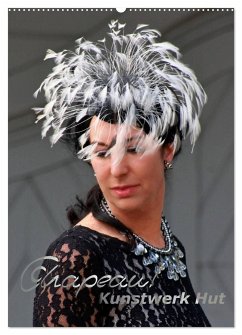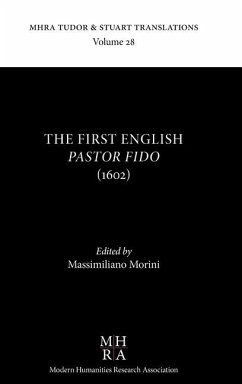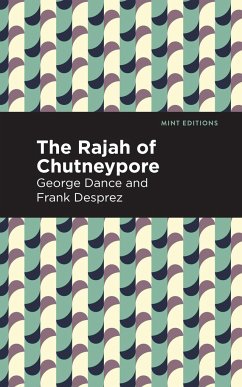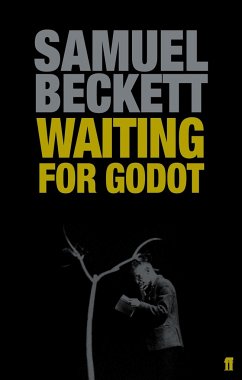
The Deceived
Versandkostenfrei!
Versandfertig in über 4 Wochen
37,99 €
inkl. MwSt.
Weitere Ausgaben:

PAYBACK Punkte
19 °P sammeln!
A father decides to marry his young daughter to an old man. His daughter escapes from a convent, disguises herself as a young boy and becomes the handsome servant to the man she's in love with. By happy fortune and mistaken identity, her brother comes to the rescue of his beleaguered sister. But not before a comic Renaissance exploration of gender identity, cross-dressing, and paternal assertions leaves the audience witnessing numerous deceptions and a stage full of deceived, from pedants and servants to tavern keepers and nursemaids. While the action takes place in Modena, the real scene is S...
A father decides to marry his young daughter to an old man. His daughter escapes from a convent, disguises herself as a young boy and becomes the handsome servant to the man she's in love with. By happy fortune and mistaken identity, her brother comes to the rescue of his beleaguered sister. But not before a comic Renaissance exploration of gender identity, cross-dressing, and paternal assertions leaves the audience witnessing numerous deceptions and a stage full of deceived, from pedants and servants to tavern keepers and nursemaids. While the action takes place in Modena, the real scene is Siena where the play was staged in 1531/1532. In the wake of the Sack of Rome of 1527, the Hapsburgs intervened in Siena's factional disputes, installing a garrison of Spanish soldiers and initiating the end of Sienese independence. In the shadow of this crisis, The Academy of the Intronati produced The Deceived (Gl'Ingannati) for the Sienese Carnival as an entertainment focusing on the intrigues of family, love, and fortune. Although seemingly apolitical, the play reflects on the character of the invaders and the effect of their presence on the lives of the citizens and their relationships. It mirrors the human condition and its priorities while creating a heroine - a type for Twelfth Night's Viola - who proves to be one of the most imaginative and irrepressive female characters to appear on the stages of Italy, France, Spain, or England. Although individual members of the Intronati have been suggested as possible authors, The Deceived was likely a collaborative effort, much in the spirit of its presentation. Translated with an introduction and notes by Donald Beecher and Massimo Ciavolella. Introduction, bibliography, plot summary, notes. 270 pages.












